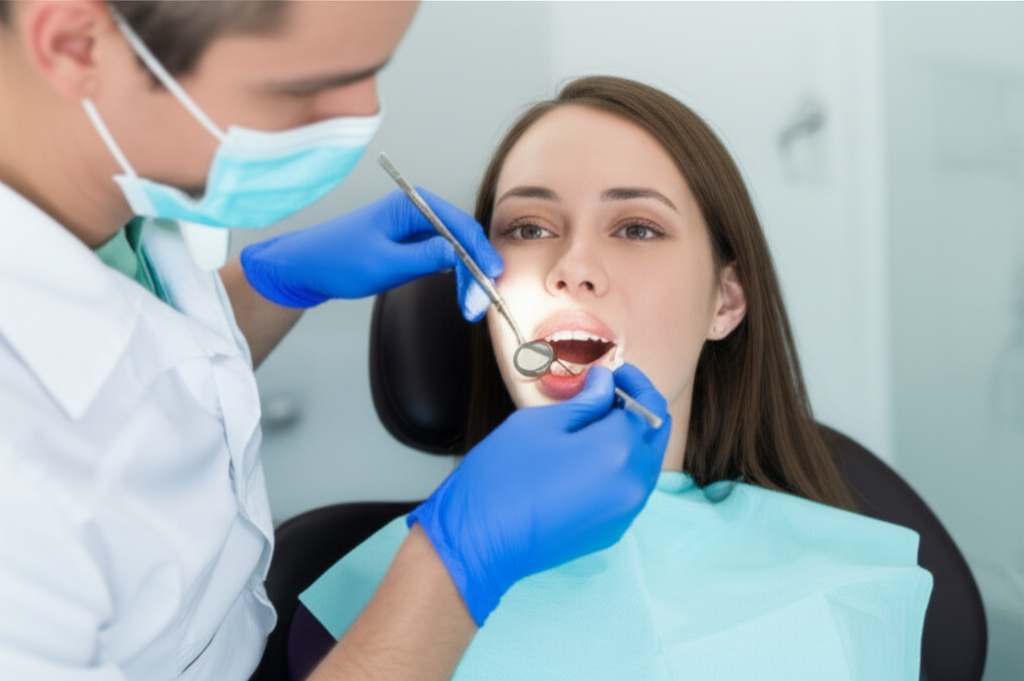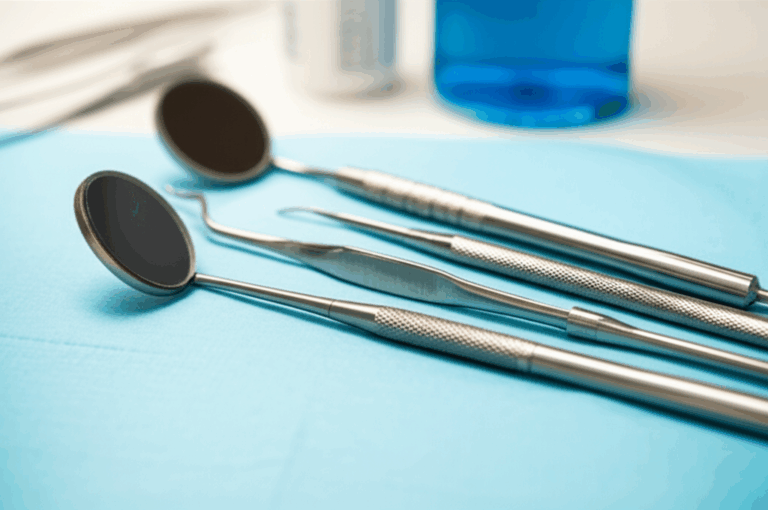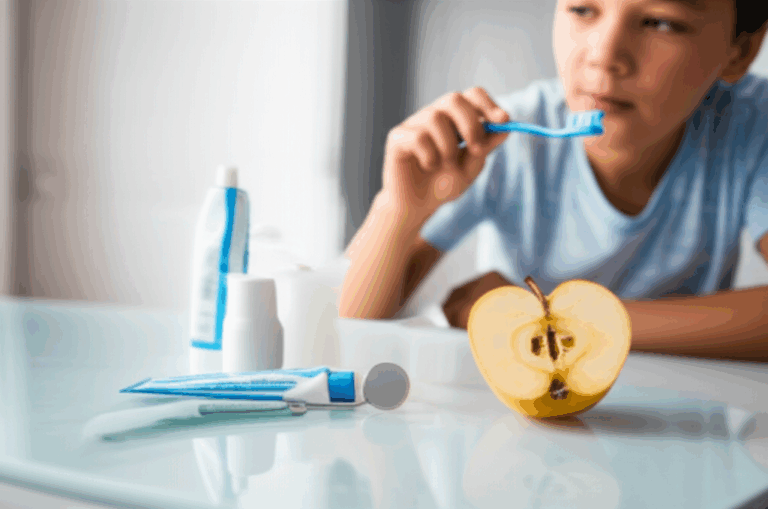
What is a Dentist DMD? Understanding the Doctor of Dental Medicine Degree
Are you confused when you see the letters “DMD” after your dentist’s name? You’re not alone. Many people wonder what it means, how it compares to a DDS, and what it really takes to become a Doctor of Dental Medicine. This article breaks it all down in plain, simple language. You’ll discover what a DMD dentist does, why those letters matter, and how DMD professionals keep our smiles shining bright. Stick around—this is everything you need to know!
Table of Contents
1. Introduction: Why Do We Need to Know About DMD Dentists?
Imagine you have a toothache that won’t go away. You look up dentists online and some have “DDS” after their names, while others show “DMD.” So, what’s the difference? Does one know more than the other? Which one should you trust with your teeth?
Let’s be honest—oral health is not just about a nice smile. It affects how you eat, talk, and even your overall health. Knowing who’s caring for your teeth matters. I’ve been to both DDS and DMD dentists over the years. The care was always great. But the difference in those titles made me question it, so I looked into it. Here’s what I found.
2. What Does “DMD” Mean?
The letters “DMD” stand for Doctor of Dental Medicine. That’s a professional dental degree, just like “DDS,” which means Doctor of Dental Surgery.
A dentist with a DMD degree has gone through years of school to learn how to:
- Find out mouth problems
- Fix cavities, tooth pain, and gum disease
- Stop issues before they happen
The title DMD started at Harvard University. When Harvard started its dental school, all degrees were given in Latin, so the name became “Dentariae Medicinae Doctor” (DMD).
DMD: What Does a Doctor of Dental Medicine Do?
A DMD looks after teeth and gums, but their job is more than that. They check the whole mouth, spot trouble early, and help keep you well. Whether it’s teaching you to brush better or doing a hard root canal, a DMD is there to help you every step of the way.
3. How Do You Become a DMD Dentist?
Becoming a DMD is not easy. It takes a lot of work, patience, and years of study. Let’s break it down.
Undergrad: The First Step
You start by finishing high school and going to college. Most future dentists pick biology, chemistry, or similar majors. You need good grades—most dental schools look for students with a strong science background.
DAT: The Dental Admission Test
Next comes the Dental Admission Test (DAT). This test checks what you know about science and if you’re ready for dental school. Think big tests with lots of science and reading, just to make sure you can keep up.
Dental School: Four More Years
Dental school goes for four years. During this time, you learn about:
- Anatomy (learning about body parts)
- Pharmacology (learning about medicine)
- Restorative Dentistry (how to fix teeth)
- Periodontics (gum health)
You spend lots of time in the clinic, too, treating real people (with teachers watching close).
Graduation and Beyond
When you finish, you become a DMD—but that’s not the end! You have to:
Some new dentists take more training to focus on things like orthodontics or oral surgery.
4. What Does a DMD Dentist Do Every Day?
Each day, a DMD dentist helps all kinds of people:
- Kids who need checkups
- Teens who need braces
- Adults with toothaches
- Seniors looking for the right dentures
Typical DMD Duties
A DMD can:
- Clean teeth and show you how to brush better
- Fill cavities
- Pull bad teeth when they can’t be fixed
- Make crowns, bridges, and even cosmetic fixes like veneers
- Find gum disease and mouth cancer
Some DMDs work in clinics or hospitals, while others run their own private office. Many work closely with technicians from a dental ceramics lab or a zirconia lab to make crowns and dentures.
5. Is a DMD Really a Doctor?
Yes, a DMD is a real doctor—for teeth, gums, and the mouth. They are not medical doctors, but they go through almost the same kind of training. Here’s a simple comparison:
| Type of Doctor | Main Focus | Education |
|---|---|---|
| Medical Doctor (MD) | Whole body, overall health | 8+ years |
| Dental Doctor (DMD/DDS) | Teeth, mouth | 8+ years |
Both have to pass hard tests and get licensed. It takes skill, patience and a lot of science know-how.
Dr. Joe Dental, a well-known dentist and teacher, says, “We may focus on the mouth, but we’re trained to spot signs of illness anywhere in your oral health and guide you to the right care. Dentists are doctors, too.”
6. DMD vs. DDS: Are They the Same?
Here’s the question everyone asks: “What’s the difference between a DMD and a DDS?” Let’s clear that up.
DDS vs. DMD: Only the Name is Different
Both DMD and DDS graduates:
- Go through basically the same classes in dental school
- Pass the same board exams
- Get the same dental licenses
- Can do the same work
So, when you see DMD or DDS on a sign, know that both are fully trained, skilled, and ready to care for your teeth.
Why Two Names?
It goes back to tradition. Some schools, like Harvard, use DMD. Others, like many state schools, use DDS. No matter which degree you see, the care is just as good.
7. What are the Key Parts of Dental School?
Dental school is broken up into two big parts: classroom learning and hands-on learning. Here’s how it goes:
1. Learning the Science
For the first two years, students learn all about:
- How the mouth works (oral cavity anatomy)
- What can go wrong (mouth diseases and problems)
- The best ways to stop cavities and gum disease
They also spend many hours working with fake teeth before helping real patients.
2. Treating Patients
During the last two years, students see real patients in school clinics. With teachers by their side, they fill cavities, pull teeth, make crowns, even put on braces. This is where the book knowledge turns into real-life skill. By the time they finish, new DMDs have hundreds of hours of real, hands-on training.
Students also learn to work with experts at a digital dental lab or a crown and bridge lab to get you the best results possible.
After School: Extra Training
Some DMDs want to take on harder work. They’ll do more years of training called “residency” to become specialists. This could mean orthodontics, oral surgery, or working with kids.
8. How Do DMD Dentists Help Your Health?
The mouth is the gateway to your body. Trouble in your teeth can mean bigger health problems.
Oral Health Means Whole Health
Did you know gum disease can raise your risk for heart disease and diabetes? Untreated tooth decay can lead to bad infections and even hospital visits. DMDs catch problems early, helping you avoid trouble.
Prevent, Find, Fix
A DMD’s day is filled with:
- Stopping cavities and gum disease
- Finding out tough tooth problems
- Treating dental emergencies, like injuries or infections
- Teaching good brushing and flossing habits
By working with partners at a digital or china dental lab, DMDs can give you strong, nice-looking tooth replacements and make your smile look great.
9. Are DMD Dentists Special in Any Way?
Every DMD is a general dentist who can fix most problems. But many go further.
Dental Specialties
Some DMDs go back to school for more years and become:
- Orthodontists (braces and straightening)
- Oral surgeons (surgery for teeth and jaw)
- Periodontists (gum experts)
- Endodontists (root canal experts)
- Prosthodontists (denture and crown specialists)
Within a dental office, the DMD is kind of like the “quarterback” of your dental team. They pick what can be fixed there and what needs a specialist.
10. Is Dentistry a Good Career for the Future?
Let’s talk numbers and job happiness. The answer: Yes, dentistry is a safe, growing job. Here’s why:
Steady Job Growth
The U.S. Bureau of Labor Statistics says dentist jobs are likely to go up about 6% over the next ten years. People always need dental care, and our population is getting older. This means more jobs and better pay for new dentists.
Good Pay and Flexibility
The usual pay for general dentists is high—about $163,900 per year. Dentists who own their own offices or do cosmetic work can get even more. The job allows flexibility, with many dentists choosing their own work times.
Helping People Every Day
For a lot of DMDs, the real win is helping people live better. Fixing a toothache, bringing back a smile, or spotting early signs of sickness makes a real difference.
11. Frequently Asked Questions (FAQ)
Q1: Can a DMD do everything a DDS can do?
Yes. Both are trained and allowed to do all dental procedures.
Q2: Do DMDs have to go to medical school?
No, but their training includes lots of medical science.
Q3: Who should I see for my dental care, a DMD or DDS?
Both are fully qualified. Pick the dentist you like and trust.
Q4: Do DMD dentists work with dental labs?
Yes! They work with experts at places like veneer labs, ceramic labs, and denture labs to get the best results for your smile.
Q5: Is there a way to see a DMD if I need special care, like dentures or night guards?
Yes. Many DMDs work closely with a removable denture lab and night guard dental lab for custom dental devices.
12. Key Points to Remember
- DMD means Doctor of Dental Medicine, a trained and licensed dental expert.
- DDS and DMD are the same in training and skills, and both can help you.
- Becoming a DMD dentist takes about eight years or more of hard school.
- Dentists help keep your teeth, gums, and mouth healthy, and this connects to the health of your whole body.
- DMD dentists are your first stop for tooth decay, gum disease, and all mouth care needs.
- Many DMDs work closely with digital, ceramic, and china dental labs to make the crowns, bridges, veneers, and dentures that bring back your smile.
- Dentistry is a safe, growing field with good pay and strong job outlook.
So, next time you see DMD after a dentist’s name, you’ll know exactly what it means. Trust your smile to these experts—they trained for years to make sure you’re in safe hands. If you want your dream smile or just want to keep your teeth and gums healthy for life, a DMD dentist is always ready to help!
Reviewed and approved by Dr. Joe Dental and our team of oral health experts.
References:
- U.S. Bureau of Labor Statistics, Occupational Outlook Handbook
- American Dental Education Association
- Centers for Disease Control and Prevention
- American Dental Association
For more details, check resources on dental school, patient care, and dental advances at major dental groups.








